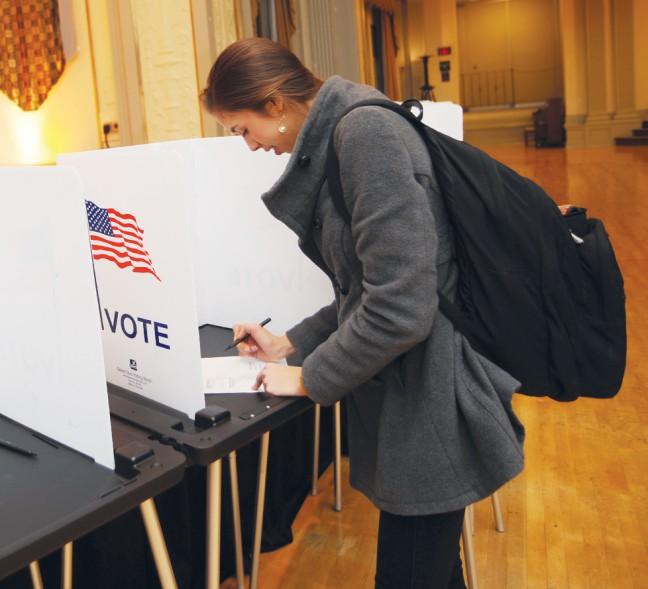Last week saw two rulings by federal judges on Wisconsin’s contentious voter ID laws. A panel issued a stay on an earlier ruling by Judge Lynn Adelman that aimed for a broad solution to voter ID restrictions by allowing individuals to swear by their identity. Another ruling by District Judge James Peterson sought a more measured response by arguing that Wisconsin’s photo identification requirements need to be reformed or replaced. This is what it means for you:
Will I need an ID in the upcoming general election?
As of now, voters will be required to provide identification at the polls and will not be allowed to sign an affidavit confirming their identity should they fail to present an ID. This is the result of a stay issued by a three-judge panel of 7th Circuit Court judges that overturned a previous injunction on Voter ID laws that would have allowed an affidavit in place of valid ID.
In a statement, the panel said there is a “substantial likelihood” the injunction will be reversed upon appeal. The appeal will go before the full 7th Circuit Court, which has 11 judges.
Rick Hasen, a law professor at University of California-Irvine and expert in voter ID law said in a blog post that the ACLU and other plaintiffs may either appeal before the full 7th Circuit Court or further appeal the decision to the Supreme Court where it will likely not receive consideration in time for the November general election.
University of Wisconsin political science professor David Canon has been following the case and explained the panel’s central argument. He said the court criticized the affidavit remedy as being “too broad” but that this may have implications for a second challenge making its way through the courts recently ruled on by Peterson.
“Given what the panel was focusing on in this decision, it sets it up nicely for endorsing Peterson’s approach,” Canon said. “What he said is … that if people are trying to get proper documentation but can’t, then the state has to give them some mechanism.”
How do these cases affect students?
While the case before the 7th Circuit Court sought a broad fix for those unable to get voter IDs, Peterson’s ruling means students will have expanded access to voting.
Students will be allowed to use expired, otherwise valid student IDs to vote and absentee ballots will be easier to access. Voters will also be able to cast their ballots even if they do not meet the 28-day residency requirement.
Are we likely to see further court-ordered changes to election procedure in Wisconsin?
Given the panel’s decision in the staying of Lynn’s ruling, Canon said it seems unlikely that we will see any further changes with the same scope as the affidavit remedy. Changing election procedure is further hampered by court precedent limiting changes that can be made close to upcoming elections.
One example, Canon said, can be seen in North Carolina where a court ruled recent redistricting unconstitutional, but did not order any changes to the 2016 election. Even so, a number of smaller procedural changes could still be ordered in time for the 2016 election.
Assuming Lynn’s ruling is reversed in the appeals process, the challenge ruled on by Judge Peterson could see changes for voters in specific circumstances.
How many people would this change to Voter ID law effect?
Canon said it’s difficult to estimate the number of people such changes would apply to, but he’s certain it is at least in the thousands.
Are there similar cases happening in other states?
Yes, in Texas, Virginia and other states, there have been numerous challenges to voting restrictions which have seen widespread success in recent months, Canon said. In a close election, such changes to voting access could have deciding influence on the eventual outcome both for national and local candidates.


















